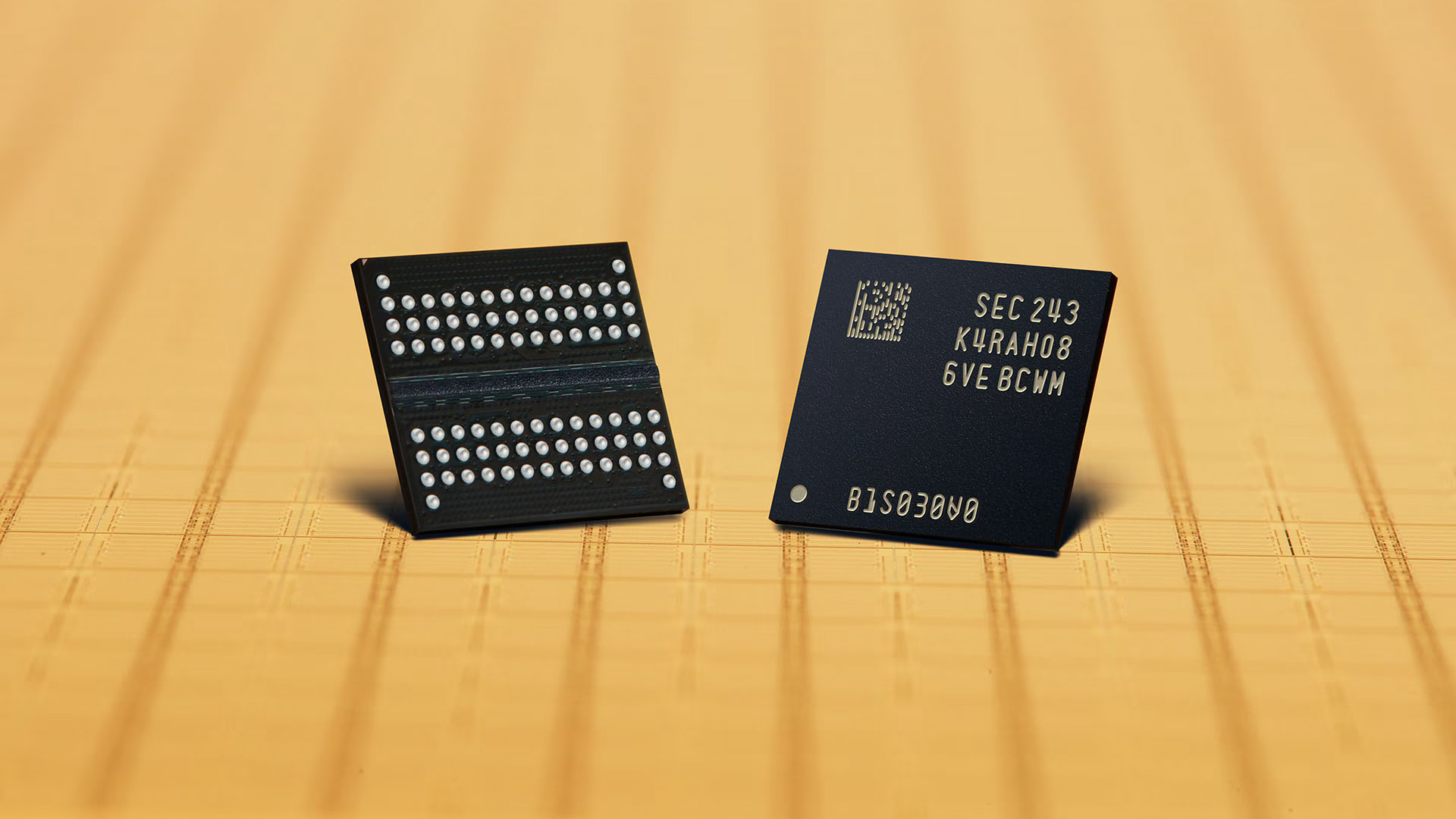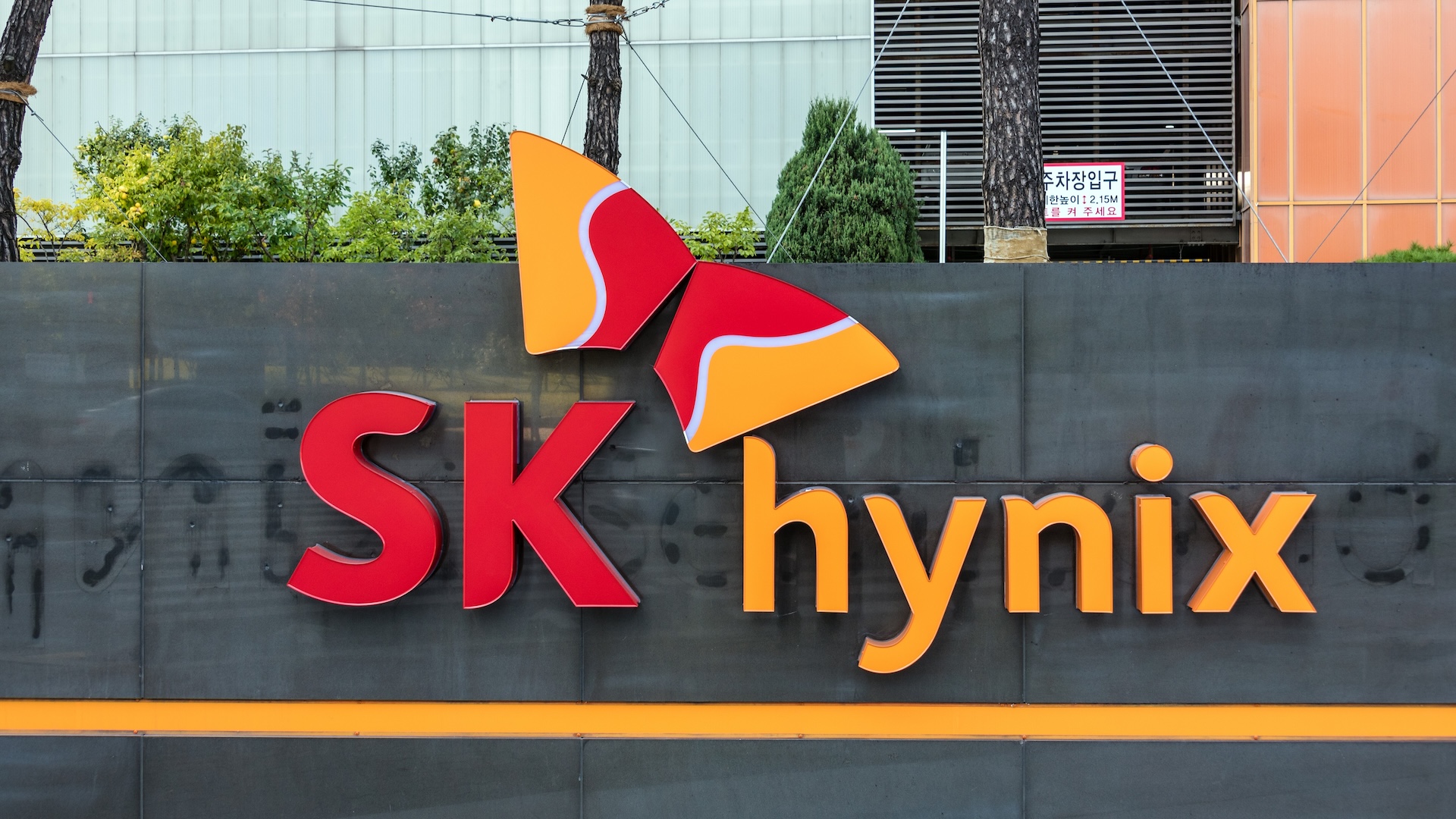| | | OpenAI's Stargate project to consume up to 40% of global DRAM output — inks deal with Samsung and SK hynix to the tune of up to 900,000 wafers per month
News
By Anton Shilov published 2 days ago
Working at scale.
Comments (8)
When you purchase through links on our site, we may earn an affiliate commission. Here’s how it works.

(Image credit: Samsung)
Samsung and SK hynix have inked preliminary agreements to supply memory to OpenAI’s massive Stargate data center initiative, reports Reuters. Instead of actual tested and packaged DRAM chips or HBM stacks, the companies will supply Stargate undiced wafers, according to Bloomberg, which highlights the vast volumes of memory and other components that Stargate needs. For now, it looks like Stargate could consume nearly half of global DRAM output.
Both Samsung and SK Hynix confirmed that OpenAI's anticipated demand could grow to 900,000 DRAM wafers monthly, which is an incredible volume that may represent around 40% of total DRAM output. The deal likely includes various types of memory, including commodity DDR5 and specialty HBM memory for AI processors. What remains to be seen is which company will dice the wafers and build actual DRAM chips, HBM stacks, and memory modules.
To put the 900,000 DRAM wafers number into context: global 300mm fab capacity is projected to reach 10 million wafer starts per month (WSPM) in 2025, according to TechInsights. DRAM capacity — which includes both commodity DDR5 and LPDDR4/LPDDR5 as well as premium HBM, and specialty DRAM types — accounted for a 22% share (2.07 million WSPM) in 2024. Analysts predict that DRAM capacity could grow by 8.7% in 2025 to around 2.25 million WSPM, which means that Stargate plans to consume 40% of it.
Latest Videos From Tom's Hardware
You may likeStargate — controlled by OpenAI, Oracle, and SoftBank — aims to build multiple huge AI data centers globally. These facilities will require an enormous number of servers (each containing hundreds, if not thousands, of chips, including state-of-the-art compute GPUs like Nvidia's Blackwell), cooling equipment, and power delivery equipment. In addition, these data centers could even require dedicated power plants to feed them. As a result, Stargate executives, such as OpenAI's Sam Altman, are touring around the world to secure strategic supply contracts and partnerships, including those across the Asia-Pacific region.
In addition to the memory wafer supply deal, Samsung companies are mulling other wide-ranging partnerships with OpenAI.
Samsung SDS will collaborate with OpenAI on the architecture and operation of the Stargate AI data centers in Korea. The company will also offer consulting and integration services for businesses aiming to incorporate OpenAI’s models into internal systems. Additionally, Samsung SDS has secured a reseller role for OpenAI services in South Korea and plans to help local firms adopt ChatGPT Enterprise.
Samsung C&T and Samsung Heavy Industries will work with OpenAI to develop floating data centers that improve cooling efficiency and cut emissions. While these facilities remain technically challenging to build, Samsung's maritime and construction units plan to leverage their engineering capabilities to address those limitations. |
|






 OpenAI and Oracle ink deal to build massive Stargate data center, total project will power 2 million AI chips
OpenAI and Oracle ink deal to build massive Stargate data center, total project will power 2 million AI chips SK Hynix projects HBM market to expand 30% annually through 2030
SK Hynix projects HBM market to expand 30% annually through 2030 Samsung reportedly slashes HBM3 prices to woo Nvidia
Samsung reportedly slashes HBM3 prices to woo Nvidia